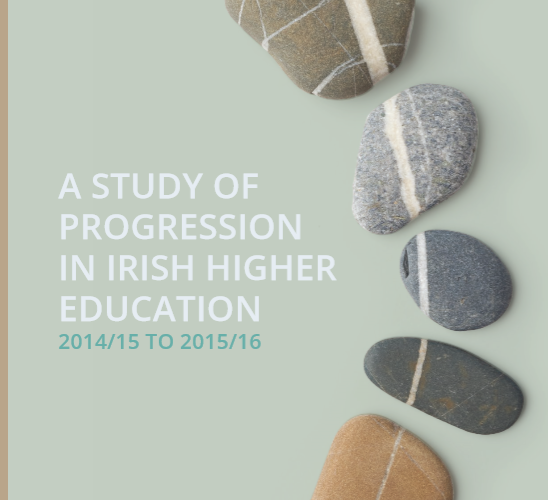
New HEA Report Shows non-Irish students perform better than Irish students
By Aoileann Ní Bhroin
Posted: 25 May, 2018
A new report by the Higher Education Authority (HEA) reveals that non-Irish students have a slightly higher progression rate (from Year 1 to Year 2) than Irish (domestic) students. The report found that 14% of non-Irish students across all study levels in 2014-15 do not progress to Year 2 of their programme compared to 15% of Irish students.
Overall the report found that 86% of the 2014/15 first year undergraduate new entrants in publicly funded higher education institutions (seven universities, fourteen institutes of technology and six colleges) progress to second year.
A total of 41,441 new entrants to the higher education system were tracked and the 86% progression rate is a slight improvement on the 85% rate from 2013/14.
Those with higher prior educational attainment, i.e higher Leaving Certificate points are more likely to progress to the second year of study than those with lower educational attainment and females are more likely than males to progress across all levels and sectors (89% to 83%).
The study also examined the relationship between the type of school attended and progression rates in college. The rates of non-progression are almost double for students from DEIS schools compared to students from fee paying schools (19% v 10%). Rates for students from standard schools are equal to the overall mean non-progression rate of 14%.
It should be noted that those who don’t progress may not have ‘dropped out’ – some will repeat the year, some may have left for personal reasons to return later, some will have decided to change course. For that reason, we refer to not going on to second year as ‘non-progression’.
The typical student most likely to progress into second year will be a female studying education or healthcare in a university or college, with relatively high Leaving Cert points. The student most likely not to progress will be a male, with relatively low Leaving Cert points, studying a Level 6 or Level 7 course at an Institute of Technology in computer science, construction or engineering.
Key Findings
Among the key findings in the report –
- Rates of non-progression vary across fields of study. Construction and Related disciplines have the highest non-progression rate at 23%. However, this is down five percentage points from the year previous. Like previous years, Medicine has the lowest non-progression rate of all 2014/15 new entrants in profession-oriented courses, at two percent, while Architecture has the highest rate at 20%.
- The rates of non-progression in 2014/15 varied within and between sectors ranging from 27% and 25% at levels 6 and 7 in the Institutes of Technology compared to 15%, 10% and 8% at level 8 in institutes of technology, universities and colleges respectively.
- In the institute of technology sector at level 6, level 7 and level 8, mature students are more likely to progress to the following year of study than a new entrant who is under the age of 23. The opposite is true at level 8 in the university and colleges sector, where younger students are more likely to progress than mature students.
- Across all levels and sectors, Irish students had a non-progression rate of 15% compared to 14% among non-Irish students.
- Prior academic attainment (Leaving Certificate points) is the strongest predictor of nonprogression. Those entering with lower points are much more likely to not progress compared to those entering with higher points, even after controlling for the set of student and course/ institute characteristics.
- Although headline rates of non-progression are generally much higher in institutes of technology than in universities, after controlling for the set of student and course/institute characteristics, particularly prior academic attainment of the student intake (Leaving Certificate points), the odds ratios are quite close across most institutes with the odds of not progressing actually higher in some universities than in some of the institutes of technology.
Guidance Needed and Equity Gap Must Be Tackled
Dr. Graham Love, Chief Executive of the HEA, commented,
“There are positive trends in the higher education system as we see small increases in the proportion of students who do progress from first to second year. Generally, if a student can get to second year, he or she is highly likely to complete their course.”
“However, the continuing relatively high non-progression rates on some Level 6 and 7 courses in computing, engineering and construction remains a worry. The majority of these students are male. They may learn in a different way and I am glad that the new apprenticeships model is responding to that way of learning. We also need to ensure that there is adequate guidance and information at second level. There is a personal and financial cost to the individual student if he or she does not complete their College course; there is also a cost to the State. We need to ask if students are picking wrong courses and how can we help ensure that they make the right choice.”
In addition, he remarked on the continuing equity gap,
“We have an education system that is committed to access and to equality but it is still clear that a student from a financially better off background and who may have been able to attend a fee-paying school has an advantage over those from less well-off backgrounds.”


